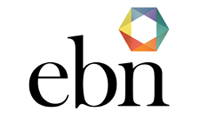
Recently I was on holiday and started talking to an American woman about what she did. She was a registered nurse who had a doctorate in medical administration. Her special area of interest was preventing heart disease. As part of her work she gives talks to various groups of people. Being who I am, I asked her if she wanted to make this some sort of business to (and remember I was talking to an American) monetise it all. (Apologies but I could not bring myself to spell monetise with a z!) She said she would love to offer products and information etc. online but didn’t know where to start. We went on to chat about other things and didn’t get back to business mode again.
The next day while eating lunch I realised I knew how to do what she needed to do, because I had done it for my (and staying in American jargon) “side hustle”—helping people lose weight by devising their plan to balance and manage their weight loss. (If you are interested here’s the link: www.glenyschattertley.uk.com). What we did was have a breakfast talking business, which felt like being home, if we had meetings that looked out over the Indian Ocean! I quickly outlined what her online “funnel” might look like (I had to explain this to her) based on what I had on my website. We also spent some time looking at marketing. I also remembered how panicky I felt when the mighty Lesley Morrissey (https://www.insidenews.co.uk) started me on the journey of online selling and also, of course, social media.
Lesley reduced my panic by not only providing her expertise but also support (think hand-holding) as we got this project off the ground. During my conversation with my new contact I could hear myself echoing some of the things Lesley had said: “You can choose how and when you do something”, “this is your business and these are my suggestions”, “You can stop at any point” etc.
During my slightly surreal breakfast meeting I amazed myself at what I knew, however I know that I am not an expert and I believe we should always use experts and not think we know everything, so I referred her to Lesley’s page and suggested she sign up. I also reminded her that she could choose not to do anything, or choose not to anything just yet. As a potential small business. That is her right.
Now, I am back home and back into my usual networking, which I do know something about. In case you need some help with your networking. here is my gift to you: my Top 20 networking tips just follow this link: ebn.uk.com and complete the form to receive your copy.
Have fun
Glenys











Recent Comments